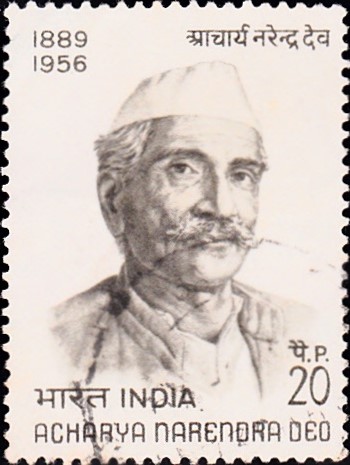
Acharya Narendra Deo 1971
A commemorative postage stamp on the 25th Death Anniversary of Acharya Narendra Deva, one of leading theorists of Congress Socialist Party in India :

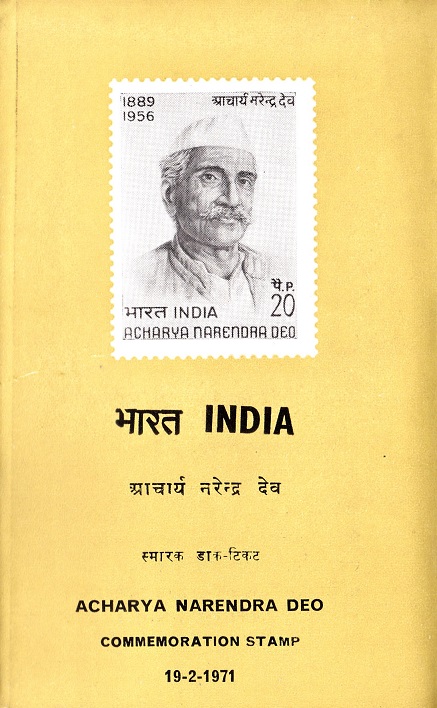 Issued by India
Issued by India
Issued on Feb 19, 1971
Issued for : The Posts and Telegraphs Department feels privileged to bring out a special commemorative stamp in honour of Acharya Narendra Deo, a great son of India.
Description of Design : The design of the stamp is vertical and depicts a portrait of Acharya Narendra Deo.
Type : Stamp, Postal Used
Colour : Raw Sienna
Denomination : 20 Paise
Overall Size : 3.91 X 2.90 cms.
Printing Size : 3.56 X 2.54 cms.
Perforation : 13 x 13
Watermark : Printed on unwatermarked Adhesive stamp paper
Number Printed : 30,00,000
Number per issue sheet : 35
Printing Process : Photogravure
Designed and Printed at : India Security Press
Name : Narendra Deva
Born on Oct 30, 1889 at Sitapur, Uttar Pradesh, India
Died on Feb 19, 1956 at Erode, Tamil Nadu, India
About :
- Acharya Narendra Deo was born in Sitapur, Uttar Pradesh, in 1889. He was brought up in Faizabad and took his M.A. LL.B. degree from the Allahabad University. In 1916, he became Secretary of the Home Rule League in his district; and in 1917, he joined the Indian National Congress.
- Acharyaji took an active part in the 1921 Civil Disobedience campaign and in all subsequent struggles in connection with the Freedom movement. He suffered imprisonment many times. He was in charge of the individual satyagraha in Uttar Pradesh in 1940.
- Acharyaji was intimately connected with the Kisan movement since 1921 when he organized it in his district. He also helped in the founding of the All-India Kisan Sabha. He fought consistently for the abolition of Zamindari and as President of the Agriculture Enquiry Committee, U.P., greatly contributed to clarifying the concept of land reforms.
- He was elected to the Legislative Assembly of Uttar Pradesh in 1938, and again in 1946. He was a member of the Legislative Council, Uttar Pradesh in 1952-1954, and of the Rajya Sabha in 1954-56.
- Acharyaji’s work as an educationist is also well known. He was the Vice-Chancellor of the Kashi Vidyapith from 1927 to 1947. He was also the Vice-Chancellor of the Lucknow University and Banaras Hindu University. He was member of the First Education Commission and the Chairman of the Committee of Primary Education, U.P.
- Acharya Narendra Deo was a keen student of both Eastern and Western thoughts. As a student, he studied Mazzini‘s works in English and was much impressed by his concept of nationalism. He was also much inspired and impressed by the Russian Revolution.
- He was an eminent scholar of ancient Indian history. The Buddhist philosophy impressed him most. His book “Abhijnyan Dharma Kosa” is ranked as an authoritative treatise on Buddhism.
- Acharyaji was an excellent orator in Hindi, Urdu and English and was well versed in Arabic, Persian, Sanskrit, Pali, Prakrit, Bengali, French and German.
- Acharyaji visited China in a cultural delegation sent by the Government of India in 1950, and later visited Yugoslavia, Austria and Germany in 1954.
- Acharya Narendra Deo was a great national leader and ardent patriot. For forty years, he strove hard for political freedom, social service and economic justice and the cultural advancement of the people. To establish a socialist society on sound foundations of democracy, continued to be the mission of his life till the end.
- He was a social thinker in advance of his time. His personality embodied a fine harmony of creative thought, social action and deep emotion.
- Today, a grateful nation remembers the services of this eminent leader who gave his best to attain freedom for his country and to prepare the people for building a socialist society on sound democratic foundations.


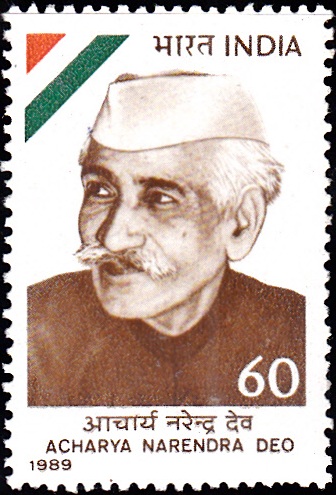
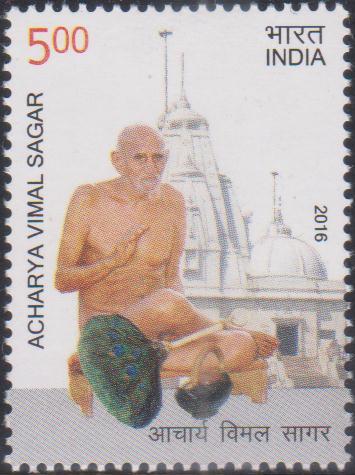
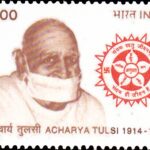
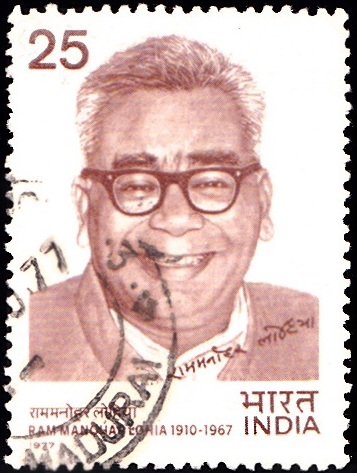
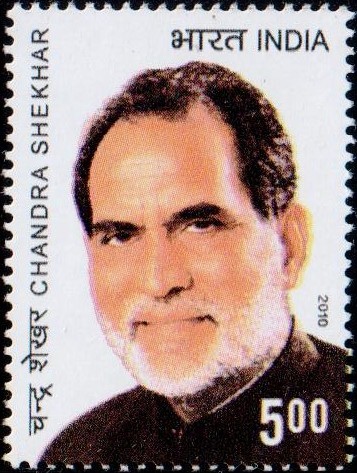
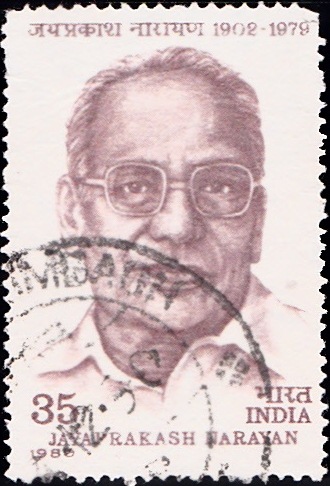
[…] degree and joined the socialist movement in the early 1950s. He was closely associated with Acharya Narendra Dev, doyen of the Indian Socialist Movement and was appointed as General Secretary of the U.P. State […]
[…] A postage stamp in the denomination of 20P, was brought out by the Department on 19-2-1971, on his 25th Death anniversary. This second stamp on the personality is brought out to commemorate […]